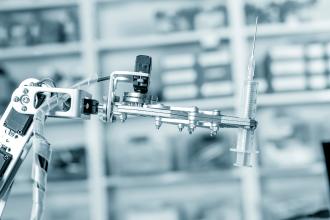
Photo Courtesy of Time Magazine
"Artificial intelligence has the potential to radically change health care. Imagine a not too distant future when the focus shifts away from disease to how we stay healthy.
At birth, everyone would get a thorough, multifaceted baseline profile, including screening for genetic and rare diseases. Then, over their lifetimes, cost-effective, minimally invasive clinical-grade devices could accurately monitor a range of biometrics such as heart rate, blood pressure, temperature and glucose levels, in addition to environmental factors such as exposure to pathogens and toxins, and behavioral factors like sleep and activity patterns. This biometric, genetic, environmental and behavioral information could be coupled with social data and used to create AI models. These models could predict disease risk, trigger advance notification of life-threatening conditions like stroke and heart attack, and warn of potential adverse drug reactions.
Health care of the future could morph as well. Intelligent bots could be integrated into the home through digital assistants or smartphones in order to triage symptoms, educate and counsel patients, and ensure they’re adhering to medication regimens.
AI could also reduce physician burnout and extend the reach of doctors in underserved areas. For example, AI scribes could assist physicians with clinical note-taking, and bots could help teams of medical experts come together and discuss challenging cases. Computer vision could be used to assist radiologists with tumor detection or help dermatologists identify skin lesions, and be applied to routine screenings like eye exams. All of this is already possible with technology available today or in development."
Read more about the use of AI in health care at Time magazine.
